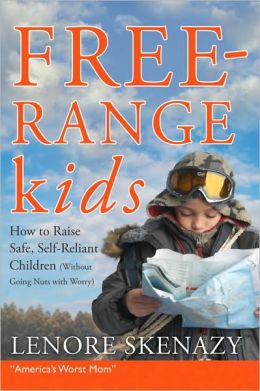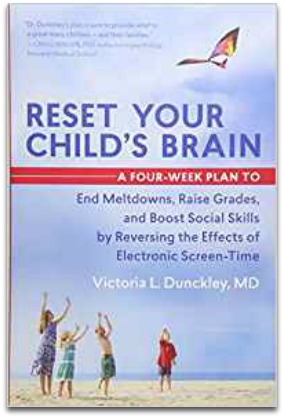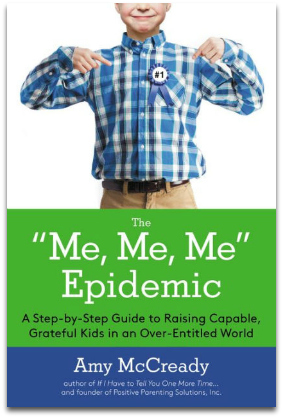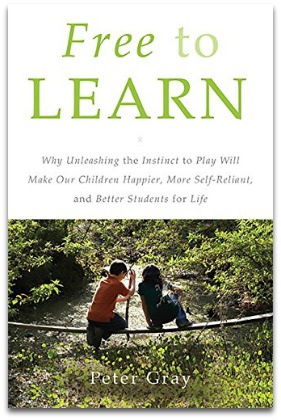 Do you remember summers when you were a kid? How you’d leave the house in the morning and explore the entire neighborhood on your bike with your friend and come home when the streetlights came on?
Do you remember summers when you were a kid? How you’d leave the house in the morning and explore the entire neighborhood on your bike with your friend and come home when the streetlights came on?
I know I do.
During the summer my brother and I would burst out of the house at 9am with a bag of sandwiches for lunch and a “see ya later” to our parents. They never worried about us, knowing that we would come back – alive and well – when we had run out of food.
I love those memories! I think of those as some of the best times of my life.
Parenting is so much different now than when we were kids. In just 30 years smart phones and tablets have taken over. They suck my kids into a void where they remain, unreachable, until my voice reaches a pitch usually heard only by dogs.
And when they aren’t with a screen we are zooming off in the car to attend a carefully curated schedule of athletic practices, music lessons, and language classes.
These days I feel like I’m going to be accused of neglect at any moment because I let my children play unsupervised in the front yard while refusing to give them a smart phone complete with GPS tracking capabilities.
My children think differently. They think they need this stuff or their lives are going to fall apart.
They need to know French.
They have to be in 8 different sports or they won’t have any kind of shot at getting a scholarship.
They must have a smart phone and be on Snap Chat or their social lives will disintegrate into nothingness.
They are entitled to all of it! It is their due in life. It is what they must have. And I’m supposed to give it to them.
The worst part is that I feel helpless to stop it. All that technology and sport and entitlement is like a tsunami coming right for me to sweep me away.
But am I really as helpless as I feel?
A Disconnected Culture of Fear
 At some point between when we were children and when we became parents our lives became run by fear. Lenore Skenazy, author of Free-Range Kids and the woman who let her 9-year-old son ride the New York City subway alone and ended up being a founder the Free-Range Children movement, believes this was a gradual shift.
At some point between when we were children and when we became parents our lives became run by fear. Lenore Skenazy, author of Free-Range Kids and the woman who let her 9-year-old son ride the New York City subway alone and ended up being a founder the Free-Range Children movement, believes this was a gradual shift.
Little drops of fear slowly formed an entire pond of terror and our society is swimming in it. As a result we have stopped trusting our children, our community, and ourselves.
But the thing is, we live in a much safer society now! There is actually less crime today! We are so disconnected from the world around us we don’t realize just how safe our neighborhoods really are.
Think about how well you know your neighborhood. Do you know your neighbors? I barely do. Enough to nod and smile at them during a walk, but not well enough to have a prolonged chat with them.
In part, this disconnection is due to screens. Our smart phones, tablets, and other interactive screens have created an insulated bubble that we live inside. We can chose not to interact with our neighbors or with new people at all. We can order everything – even our groceries – online. We’ve forgotten how to meet new people.
 Dr. Victoria Dunckley, an award-winning child psychologist and author of Reset Your Child’s Brain, agrees that we need to think about how much screen-time access we give to our children. On top of isolating our kids, these interactive games cause a flight or flight response with in their brains. Their bodies receive a dump of adrenaline, but without the movement to burn off the energy their brains start to experience stress.
Dr. Victoria Dunckley, an award-winning child psychologist and author of Reset Your Child’s Brain, agrees that we need to think about how much screen-time access we give to our children. On top of isolating our kids, these interactive games cause a flight or flight response with in their brains. Their bodies receive a dump of adrenaline, but without the movement to burn off the energy their brains start to experience stress.
Over time the stress can build up to become chronic stress and their brains can begin to malfunction and result in behavioral reactions. These reactions make it hard for kids to connect to each other and the world around them. Without these connections the culture of fear and distrust only continues to grow!
False Connections
One thing that I used to love about technology was the ability to connect to my friends and family on social media. I thought, Here’s the way to really keep in touch with what is going on in the world!
Boy, was I so wrong!
My perception of being more connected to my family and society was a false connection. I was still in an insulated bubble of my own making, choosing to only interact with my own friend circle. I was taking no risks and was not meeting or interacting with any strangers in my neighborhood.
 Amy McCready, author of The “Me, Me, Me” Epidemic and the brain behind Positive Parenting Solutions, believes that the cultural impact of social media has been to reinforce the idea that “It’s all about me.” There is no give and take on social media as there is in a real conversation. That means my kids aren’t learning that they are part of a much bigger world.
Amy McCready, author of The “Me, Me, Me” Epidemic and the brain behind Positive Parenting Solutions, believes that the cultural impact of social media has been to reinforce the idea that “It’s all about me.” There is no give and take on social media as there is in a real conversation. That means my kids aren’t learning that they are part of a much bigger world.
She also believes that social media sites and other things that give our kids instant gratification foster the development of an entitlement attitude. “As we foster these attitudes we are robbing our kids of the opportunity to learn important relationship lessons and build resilience,” she says. This affects their relationships with peers, teachers, future employers and spouses, and society in general.
So I tried to make sure my kids had enough opportunities to build connections and get over this fear. Opportunities that were away from those darn screens and in the real world with real kids!
I signed them up for soccer, baseball, acting, swimming, chess group, French, violin, and guitar. They were scheduled from the moment they woke up until they went to bed at night.
Well, I thought, they aren’t at home in front of a tablet screen! They are meeting people!
We did this for a couple of years. And while they did meet people, my boys didn’t really cultivate friendships. They seemed to be only accumulating acquaintances. They didn’t have people they wanted to hang out with at home. Not that we had a spare minute to just be at home.
And then they were too busy to help with chores or to participate in other crucial ways inside the family structure. I did all the dishes and the laundry. I ran around throwing socks and pants in the wash, scrubbing the dishes, cleaning the toilets, and cooking up gourmet dinners.
Worst than that, they had no idea that I was exhausted. This was just what Mom did and who Mom was. Mom was just a person who was always tired and on the verge of a screaming fit.
Their role was to be ferried around to all these places and to be waited on hand and foot. All this running to sports and music did was make my boys feel they were at the center of all things. They were the sun that Mom and Dad revolved around.
We had ended up cultivating a feeling of entitlement inside them! Plus by doing all this stuff for them we hadn’t taught them any of life’s basic lessons. We hadn’t prepared them to move on into adulthood.
And where were the connections to society we were supposed to be building??
3 Ways to Build a Real Connection with Society
So how do we build these genuine connections with society that will help to combat (and hopefully permanently change) the culture of fear that we currently live in?
1. Stop Acting as a Buffer
“What flavor of ice cream do you want?” asked the lady behind the counter.
And then I – not my son – answered, “He wants chocolate.”
How many times do we speak for our kids? How many times do we step in and translate for them to the world? Let me tell you, I do it plenty.
It might seem small, me speaking up for them and ordering their chocolate cone, but it builds into something bigger. What I am doing is preventing them from learning how to speak for themselves. I am stopping them from learning how to develop self-agency.
So I stopped speaking up for them and started to let them find their own voice.
First, I stopped ordering food for them. It took a little bit of time for them to speak up at first. They would look at me expectantly and I would have to nod at them to tell them it was okay to open their mouth.
Then I found other places for them to practice. The library was a particularly great place. I stopped searching for books for them and had them ask the librarians for help. These little “asks” developed into in-depth conversations about literature.
Now our circle of friends has grown a little larger. And as our circle grows larger the level of fear I feel about their safety lessens. I start to trust that the world is full of inherently good people.
If people allow their children prove to them that the world can be kind we can shift the culture of fear to back to one of trust and community.
2. Have Them Solve Their Own Problems
A phrase Lenore Skenazy likes to quote is by child psychologist Thomas P. Johnson: “Prepare the child for the path, not the path for the child.”
I really can’t prepare the path for my child. But, oh! I can try!
I can take over homework and school projects. I can monitor his play dates with other children to be on hand when problems arise. I can even look for adult sized Velcro shoes so he won’t ever have to struggle with keeping his sneakers tied.
But the path is still there. Waiting. Filled with stones and potholes and even great chasms. And I’m not always going to be able to be there to build that bridge for him.
The only thing I can do is prepare them for the path.
I asked myself, “What is it I’m scared of letting them do?” The answers were plentiful. Walking to school alone. Having them ride their bike on the neighborhood streets. Letting them play in the park alone.
So what can I do to prepare them for those paths?
The biggest thing was to allow them to solve their own problems. To step back and watch them struggle with issues and see how they overcame them. Or to see how they failed and watch how they handled that failure.
When they fail Amy McCready recommends asking them questions like “What do you feel you did well?” and “What would you do differently next time?” These questions will help them to see beyond the failure. They help my boys learn how to problem solve.
The challenges they find to overcome inform my boys about the world around them and their place in that world. The entitlement goes away. My boys learn resilience and grit.
As they work through these questions I find my boys having the most creative ideas! When a ramp didn’t work for their remote control car (unearthed out of a box they hadn’t seen for a year) they figured out they needed a stronger material to brace the ramp at a crucial point.
Amazingly, they figured it out all by themselves! I had nothing to do with it!
What a relief!
3. De-schedule Your Schedule
 I couldn’t remember the last time we just had had a day to just be at home, much less a weekend to just do nothing. My kids couldn’t either.
I couldn’t remember the last time we just had had a day to just be at home, much less a weekend to just do nothing. My kids couldn’t either.
They had all these toys that they barely had time to play with and they couldn’t remember having a friend over that didn’t include carpooling to an event.
And I’m not alone. Dr. Peter Gray, from the Alliance for Self-Directed Education and author of Free to Learn, says that we have developed a “school-ish mentality” towards child rearing. We have begun to believe that children develop best when they are controlled or taught or directed by adults.
We are directing their time and energies into interests that may prevent them from having the opportunity to learn where their real passions are. We are preventing them from meeting people on their own terms.
We need to just let kids have time to be kids.
To do that we need to give children time for unstructured play. Through this free play, they can discover who they are and what they are capable of achieving. And when we stop policing their play with other kids they learn social skills like conflict resolution and compromise.
When you give them the opportunity to make their own decisions at play they can demonstrate to us that they are capable of making good decisions. We can see their thought processes as they take on the world without our filter. They are proving they can navigate the world in a way that reflects all the lessons we have taught them.
And the world is demonstrating that is not quite so dangerous and scary as we once thought.
Get your recording package here NOW.
2-Minute Action Plan for Fine Parents
For our contemplation questions today, consider these –
- Are there things that you did as a child that you don’t let your child do? Why?
- What is one thing you could let them do today, without your help?
- Look around your neighborhood. How well do you know your neighbors? Is there one neighbor you could either meet or get to know better?
Long-Term Action Plan for Fine Parents
Think about the structure of your child’s day and week. How much free time to they have? If there isn’t a lot of free play time is there an activity you could drop to give them that time?
What about the upcoming holidays? What kind of free play time can you give them?
Now think about the amount of screen time you allow your child to have? Could you perhaps swap out screen time for free play time?
Think about one or two places in your community where you could give your child the freedom to work independently. Could you give them part of the list in the grocery store and they could hunt down those items? Could you take them to the library and have them ask the librarian for help? How about just letting them order their own meal when you are out?
Dear Malinda,
What a great write up. Parenting differs from one region or country to another.
I grew up in Africa. Life was more rough and dangerous for us as a kid. We were mostly on the farm when we are not in school. But I survived and I am doing great and I have three children of my own.
My fear all the time is this? How do I ensure they are okay whenever I am far from them? I think of that all the time.
Regards
John